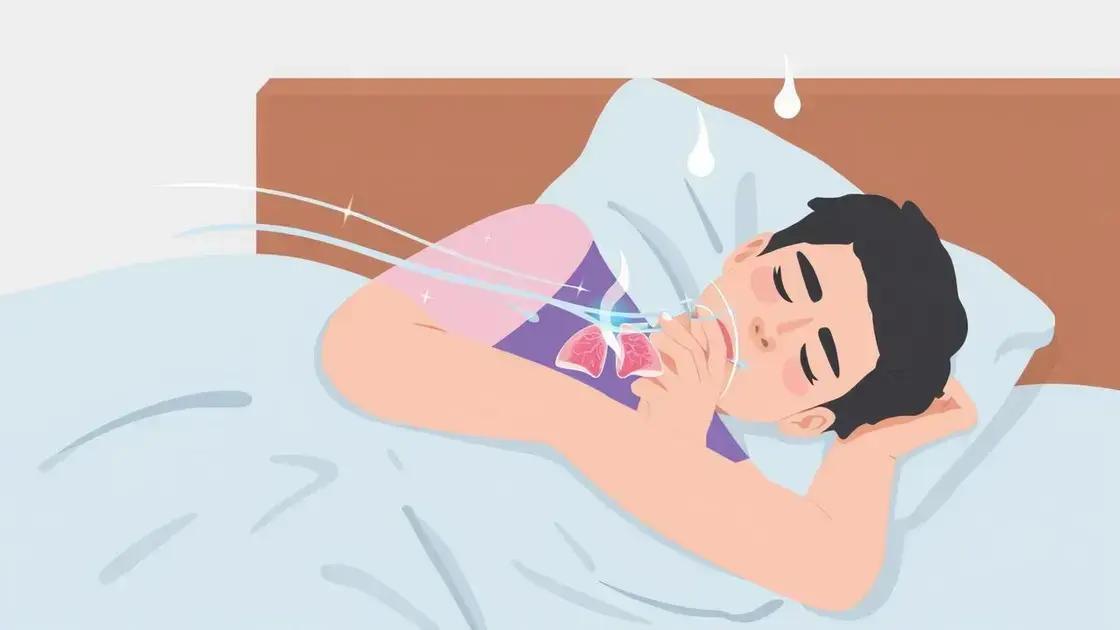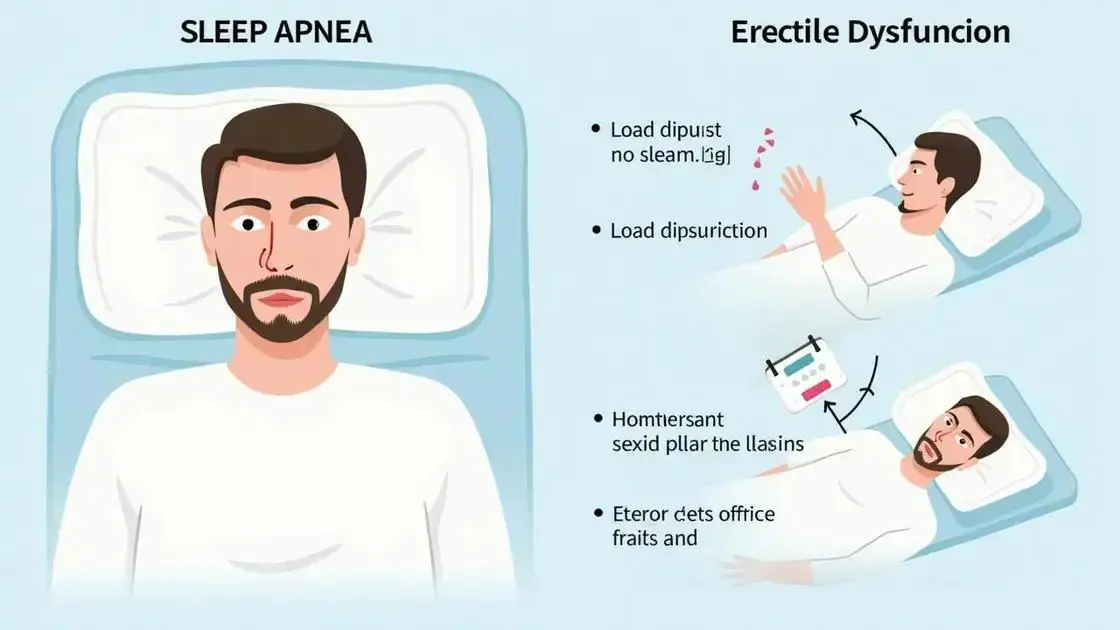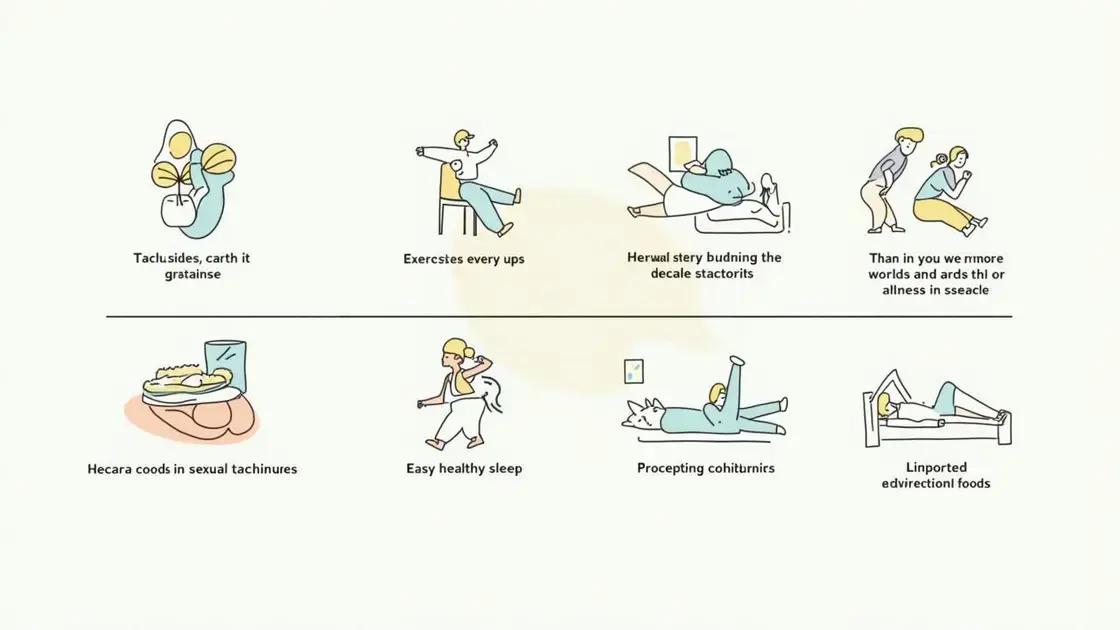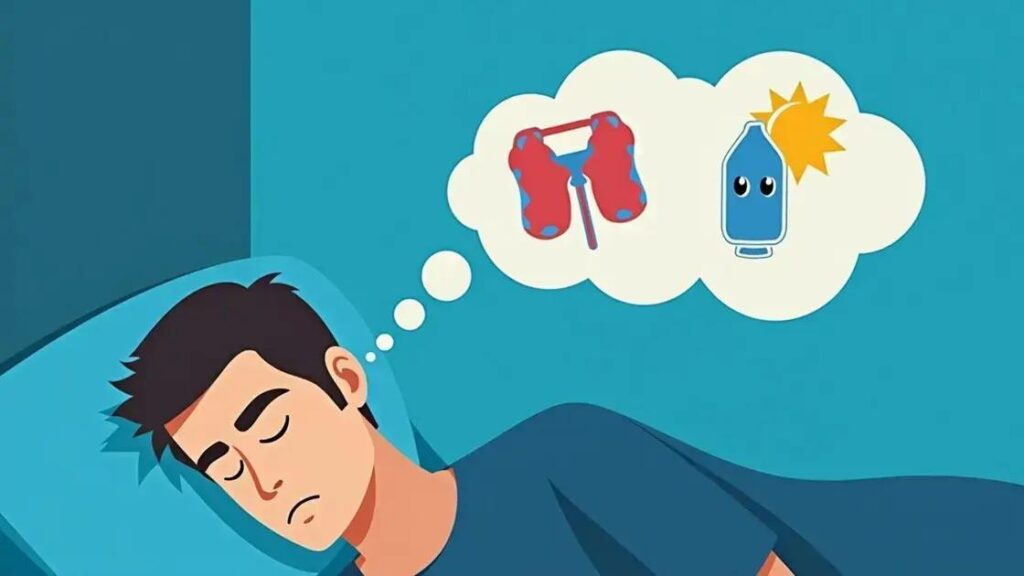The link between erectile dysfunction (ED) and sleep apnea is significant, with sleep apnea being a common contributing factor to ED. Effective treatments for both conditions include lifestyle changes, medical therapies, and sleep hygiene improvements. Addressing these interconnected health issues can enhance overall well-being and sexual health.
Erectile dysfunction and sleep apnea are two conditions that may seem unrelated at first glance, but they often intersect. Understanding the connection between erectile dysfunction (ED) and sleep apnea is crucial for anyone dealing with these challenges. In this article, we will dive into the relationship between these conditions, how they impact one another, and explore potential solutions. Knowing the signs and seeking treatment could greatly improve both your sleep quality and sexual health.
Understanding Erectile Dysfunction

Erectile dysfunction (ED) is a common condition that affects many men, often leading to feelings of embarrassment and frustration. It refers to the inability to achieve or maintain an erection adequate for sexual performance. Various factors can contribute to ED, including psychological issues, medical conditions, and lifestyle choices.
Causes of Erectile Dysfunction
Psychological factors like stress, anxiety, and depression can significantly impact sexual health. These emotional hurdles can cause difficulties in achieving arousal. In addition, medical conditions such as diabetes, heart disease, and hypertension can damage blood vessels and nerves, making it hard to get an erection. Lifestyle choices such as smoking, excessive alcohol consumption, and inactivity can also play a role.
Symptoms of Erectile Dysfunction
The primary symptom of ED is difficulty getting or maintaining an erection. Other symptoms may include reduced sexual desire and trouble achieving orgasm. If you notice these issues regularly, it’s essential to consult a healthcare provider for proper evaluation and guidance.
Diagnosis of Erectile Dysfunction
To diagnose ED, healthcare professionals may conduct physical examinations, inquire about your medical history, and recommend laboratory tests. These might include blood tests to assess hormone levels and overall health. Understanding your ED helps in developing a personalized treatment plan.
Treatment for Erectile Dysfunction
Treatment options for ED vary based on its underlying causes. They can include oral medications, therapy, lifestyle changes, and sometimes surgical options. The key to effective treatment is addressing both psychological and physical factors in a comprehensive way.
What is Sleep Apnea?

Sleep apnea is a serious sleep disorder that causes interruptions in your breathing while you sleep. People with sleep apnea typically experience pauses in breathing, which can last for a few seconds to minutes. This can occur multiple times throughout the night, leading to disrupted sleep and decreased oxygen supply to the body.
Types of Sleep Apnea
There are several types of sleep apnea, with the most common being obstructive sleep apnea (OSA). OSA occurs when the muscles in your throat relax excessively during sleep, blocking the airway. Centrally controlled sleep apnea is less common and occurs when your brain fails to send the right signals to muscles that control breathing. Complex sleep apnea syndrome is a combination of both obstructive and central sleep apnea.
Symptoms of Sleep Apnea
Common symptoms of sleep apnea include loud snoring, gasping for air during sleep, excessive daytime sleepiness, and difficulty concentrating. People with untreated sleep apnea may also experience irritability and mood swings.
Causes of Sleep Apnea
Several factors contribute to the development of sleep apnea. These may include obesity, age, genetics, and certain medical conditions like diabetes or heart disease. Anatomical features such as a thick neck or enlarged tonsils can also increase the risk.
Diagnosis of Sleep Apnea
To diagnose sleep apnea, healthcare professionals may conduct a sleep study, known as polysomnography. This study monitors various body functions during sleep, including movement, breathing patterns, and oxygen levels. Recognizing signs of sleep apnea is crucial for effective treatment.
The Connection Between ED and Sleep Disorders

The connection between erectile dysfunction (ED) and sleep disorders, particularly sleep apnea, is significant and often overlooked. Research shows that men with sleep apnea are more likely to experience ED. The disrupted sleep patterns from sleep apnea can lead to reduced levels of testosterone, which is essential for sexual function.
How Sleep Affects Sexual Health
Quality sleep is vital for overall health, including sexual health. Lack of sleep can result in fatigue, decreased libido, and difficulties in achieving an erection. Men who do not get enough restorative sleep may notice a decline in their sexual performance.
Hormonal Changes
Sleep apnea leads to repeated awakenings during the night, which can disturb the natural sleep cycles responsible for hormone production. This situation affects testosterone levels, which can directly influence erectile function. Low testosterone is closely linked with ED, creating a cycle of worsening symptoms.
Common Risk Factors
Men with certain risk factors are more likely to suffer from both conditions. Obesity, for example, is a common risk factor for both sleep apnea and ED. Obese individuals have a higher chance of developing both conditions due to the impact of excess weight on cardiovascular health and hormone levels.
The Importance of Treatment
Treating sleep apnea can significantly improve erectile function in men who experience both conditions. By addressing sleep disorders, individuals may notice improvements in their sexual health and overall quality of life. Seeking medical advice for both ED and sleep-related issues is crucial for effective management.
Treatment Options for Both Conditions

Treating erectile dysfunction (ED) and sleep apnea together is crucial for improving overall health and well-being. Several treatment options are available that can address both conditions effectively.
Medical Treatments for ED
Common medical treatments for ED include oral medications such as Viagra (sildenafil), Cialis (tadalafil), and Levitra (vardenafil). These medications work by increasing blood flow to the penis, helping achieve an erection during sexual arousal. It is important to consult a healthcare provider before starting any medication to ensure safety and effectiveness.
Continuous Positive Airway Pressure (CPAP)
For sleep apnea, the most common treatment is the Continuous Positive Airway Pressure (CPAP)</strong) machine. This device helps keep the airway open during sleep by providing a steady stream of air through a mask. Using a CPAP machine can improve sleep quality and reduce the symptoms of both sleep apnea and ED.
Lifestyle Changes
Making healthy lifestyle changes can also help manage both conditions. Regular exercise, a balanced diet, and maintaining a healthy weight are essential for improving sexual health and sleep quality. Reducing stress through mindfulness or meditation can further support these efforts.
Counseling and Therapy
For individuals whose ED is influenced by psychological factors, counseling or therapy can be beneficial. Sex therapy can help address emotional or relational challenges affecting sexual performance. It is often helpful to work with a therapist who specializes in sexual health.
Combining Treatments
In some cases, combining treatments can be the most effective approach. For example, a doctor might recommend medication for ED along with lifestyle changes and CPAP therapy for sleep apnea. A personalized treatment plan can maximize benefits and address individual needs.
Preventive Measures for Better Sleep and Sexual Health

To promote better sleep and enhance sexual health, several preventive measures can be adopted. Implementing these changes can lead to improved overall well-being.
Maintain a Healthy Weight
Keeping a healthy weight is crucial for reducing the risk of both erectile dysfunction and sleep apnea. Obesity increases the chances of developing both conditions. A balanced diet rich in fruits, vegetables, lean proteins, and whole grains can help maintain a healthy weight.
Regular Exercise
Engaging in regular physical activity can enhance sleep quality and promote sexual health. Exercise helps improve blood flow, boosts mood, and reduces stress. Aim for at least 30 minutes of moderate exercise most days of the week.
Practice Good Sleep Hygiene
Good sleep hygiene includes creating a relaxing bedtime routine, keeping your sleep environment dark and quiet, and sticking to a regular sleep schedule. Avoid screens and stimulating activities before bedtime to improve sleep quality.
Limit Alcohol and Quit Smoking
Excessive alcohol and smoking can worsen both sleep apnea and erectile dysfunction. Limiting alcohol intake and quitting smoking can significantly improve sleep and overall health.
Manage Stress
Chronic stress can impact both sleep and sexual health. Finding effective ways to manage stress, such as meditation, deep breathing exercises, or yoga, can enhance your quality of life and improve sexual performance.
Understanding the Link Between Erectile Dysfunction and Sleep Apnea
Recognizing the connection between erectile dysfunction (ED) and sleep apnea is essential for addressing both issues effectively. Improved awareness can lead to better treatment strategies and outcomes for those affected. By understanding common causes and risk factors, individuals can take proactive steps to manage their health.
Employing various treatment options—from medical therapies to lifestyle changes—can help tackle both conditions simultaneously. Better sleep hygiene and preventive measures are crucial for maintaining optimal sexual health while addressing sleep disorders.
Ultimately, a collaborative approach between patients and healthcare providers can enhance overall well-being, leading to improved quality of life and sexual function.
FAQ – Frequently Asked Questions about Erectile Dysfunction and Sleep Apnea
What is the link between erectile dysfunction and sleep apnea?
Erectile dysfunction (ED) and sleep apnea are connected conditions, where sleep apnea can lead to reduced testosterone levels, impacting sexual function.
What are the common symptoms of sleep apnea?
Common symptoms of sleep apnea include loud snoring, gasping for air during sleep, excessive daytime sleepiness, and difficulty concentrating.
What treatment options are available for erectile dysfunction?
Treatment options for ED include oral medications, therapy, and lifestyle changes such as diet and exercise. Consulting a healthcare provider is essential.
How can I improve my sleep quality?
Improving sleep quality can be achieved through good sleep hygiene practices, such as maintaining a consistent sleep schedule and creating a comfortable sleep environment.
Are lifestyle changes effective in reducing symptoms of ED and sleep apnea?
Yes, lifestyle changes like maintaining a healthy weight, exercising regularly, and avoiding alcohol and smoking can significantly improve both conditions.
Is treatment for sleep apnea effective in improving erectile dysfunction?
Treating sleep apnea, especially with CPAP therapy, can lead to improvements in erectile function for men suffering from both conditions.













